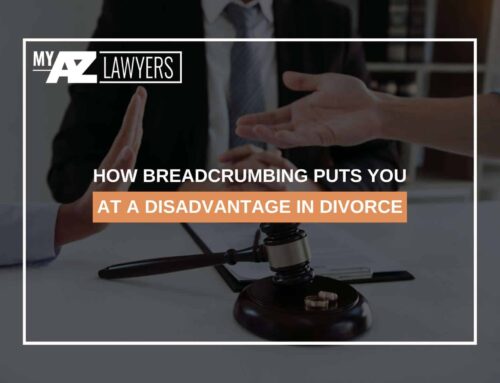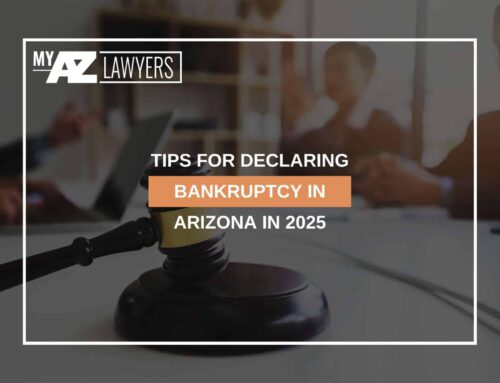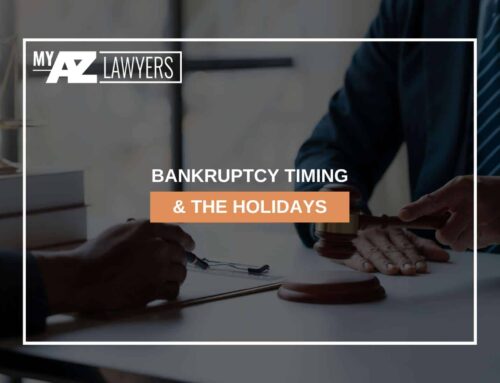Table Of Contents
The Credit Effects of Foreclosures and Short Sales
A mortgage is a secured debt, meaning that you can’t just decide not to pay and to walk away. If you fall behind on your payments, for any reason, the bank has the right to sell the property and recoup whatever value it can. That is the foreclosure process. The bank seizes your property and sells it at auction, trying to get as much as it can to cover what you still owe on the loan. As a Mesa bankruptcy law office, My AZ Lawyers is very familiar with this process.
If you fall behind on your mortgage and can’t pay it, you may decide to just let your home fall into foreclosure. You may even stop trying to pay anything, knowing that the inevitable will come. You know that you will take a hit to your credit, but you may not feel that you have any other options.
Alternately, you may decide to take a more proactive approach and sell the house yourself before the foreclosure process can start. Yet, if you owe more than the house is worth, you may feel stuck. A short sale may help. With a short sale, you sell the house at a loss, and then you file a short sale request with the bank, indicating your financial hardship. The bank may agree to do so in order to get what it can, knowing that you are unable to pay. In most cases, you would not be responsible for the difference between the sale and the loan amount.

Impact on Your Credit Score
Exactly how a short sale or foreclosure will impact your credit score depends on a number of factors, including your credit history, how many payments you missed on the mortgage or how many payments you were late, the status of your other credit accounts, the amount of your debt, and so on.
Typically, reports have shown an average drop in credit scores of anywhere from 150 to 300 points for both foreclosures and short sales. There is debate over whether foreclosure or short sale has a bigger impact, with people in both camps saying that one is better than the other. Reports of when you can apply for traditional financing after a foreclosure or short sale range anywhere from two to four years.
Filing for Bankruptcy
Filing for bankruptcy in Phoenix may be another option if you are falling behind on your house payments or want to get out of your debt. Which chapter of bankruptcy you file depends on your finances and your goals. For example, if you don’t want to keep your house, you can file for Phoenix Chapter 7 bankruptcy if you meet the income guidelines. You would relinquish the house, and any remaining debt would be discharged, as well as your unsecured debt.
If you want to keep your house, and it has not already entered the foreclosure process, you can file for Phoenix Chapter 13 bankruptcy and get your debt reorganized. The amount you owe on your mortgage can be included in your debt repayment plan, which lasts for three to five years. You may be able to catch up on what you owe and save your home. You will also get your other debt under control, as you will have a single, affordable monthly payment. Debt that remains at the end of the repayment term may be discharged.
Besides helping you get debt relief, an advantage of bankruptcy is that it doesn’t have the same impact on your credit as a foreclosure or a short sale. You’ll still see a drop in your credit score, but on average, it won’t be as bad as it would have been with a foreclosure or short sale. You’ll be able to rebuild your credit more quickly.
If you are struggling to pay your mortgage or other debts, talk to My AZ Lawyers about how bankruptcy might help you. Our experienced bankruptcy attorneys will carefully review your finances and help you understand how each chapter of bankruptcy can impact you. We’ll help you find the best option to get the maximum debt relief and to meet your goals, whether that is to keep your house or other assets. Call in Phoenix today to meet with a bankruptcy lawyer and learn about your options for debt relief.
Arizona Offices:
Mesa Location:
1731 West Baseline Rd., Suite #100
Mesa, AZ 85202
Office: (480) 448-9800
Email: [email protected]
Website: https://myazlawyers.com/
Glendale Location:
20325 N 51st Avenue Suite #134, Building 5
Glendale, AZ 85308
Office: (602) 509-0955
Tucson Location:
2 East Congress St., Suite #900-6A
Tucson, AZ 85701
Office: (520) 441-1450
Avondale Location:
12725 W. Indian School Rd., Ste E, #101
Avondale, AZ 85392
Office: (623) 469-6603











